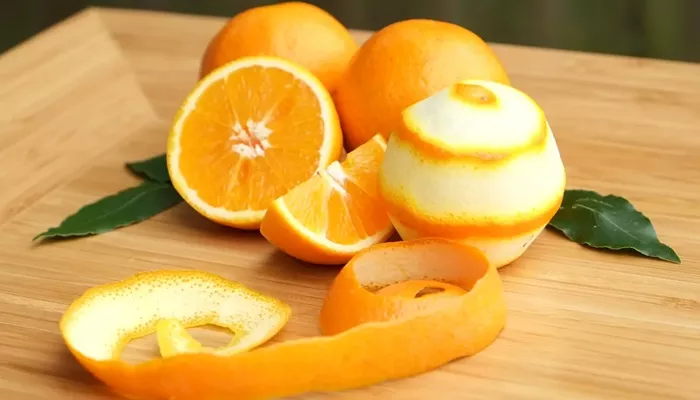Orange peels—often tossed in the trash without a second thought—may be the garden upgrade you’ve been missing. Far from just food waste, these citrus scraps can enrich your soil, repel pests, and even help you kickstart seedlings. Gardening experts are now encouraging homeowners to rethink what orange peels can do.
We spoke with gardening specialists Adam Weiss, founder of Pike Lane Gardens, and Steve Corcoran, CEO of the lawn care company Lawn Love, to explore how orange peels can become a powerful, natural tool for gardeners of all skill levels.
1. Feed Your Soil With Nutrient-Rich Compost
Orange peels are loaded with vital nutrients like nitrogen, phosphorus, and potassium—all of which play a key role in healthy plant growth. According to Weiss, these components help build stronger root systems and more vibrant plants. But there’s one important tip: only use peels from organic oranges.
“You don’t want chemicals seeping into your garden soil,” Weiss cautions.
To use orange peels in compost, start by drying them thoroughly. Once dried, grind or finely chop the peels before adding them to your compost pile. You can also sprinkle them directly around plant bases, followed by a gentle watering. Smaller pieces decompose more easily, so chopping is essential.
2. Keep Ants Away With Natural Citrus Power
If ants are invading your garden, orange peels might be your answer. Steve Corcoran explains that the fruit contains d-limonene, a natural compound known to repel insects.
“Ants dislike the strong citrus scent,” Corcoran notes.
To use orange peels as an ant repellent, dry them completely and grind them into a fine powder. Sprinkle the powder around affected areas. Since it can wash or blow away, you may need to reapply regularly for lasting results.
3. Start Seedlings With Eco-Friendly Peel Pots
For gardeners starting new plants, orange peels can double as biodegradable seed starter pots. Not only are they eco-friendly, but they also provide a nutrient boost to young seedlings thanks to their natural potassium and nitrogen content.
Simply cut an orange in half, scoop out the flesh and seeds, and fill the hollowed peel with potting soil. Add your seeds and place the peel in a sunny spot. Once the seedling grows its first true leaves, transplant the whole peel into a larger pot or directly into the ground. The peel will break down over time, feeding the soil as it decomposes.
4. Protect Plants From Aphids With a Citrus Spray
Aphids—small insects that feed on plant sap—can do serious damage in a short amount of time. Fortunately, orange peels can help keep them at bay.
Weiss recommends making a DIY citrus spray using orange peels, hot water, and a small amount of dish soap. Place the mixture in a spray bottle, shake well, and apply it to the lower leaves and stems of your plants. The soap helps the solution stick, while the citrus scent acts as a natural deterrent.
“Just remember to reapply after heavy rain,” Weiss advises.
Conclusion
From compost to pest control, orange peels prove to be more than just leftovers. Easy to prepare and completely natural, they offer a cost-effective way to support plant health and sustainability in your garden. So next time you peel an orange, think twice before tossing the skin—your garden might thank you.


